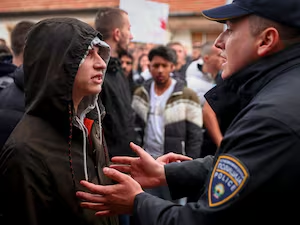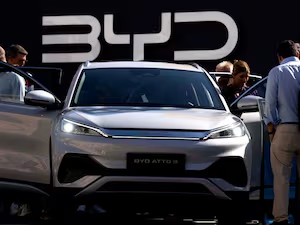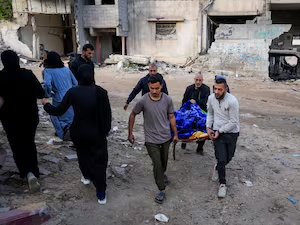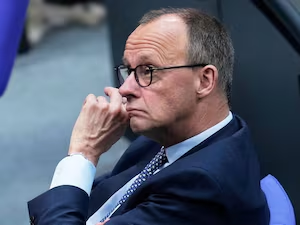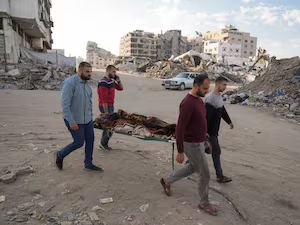Russia insists it will respect caps on nuclear weapons in treaty with US
The Foreign Ministry issued a statement after President Vladimir Putin claimed he was suspending Moscow’s participation in the New Start treaty.
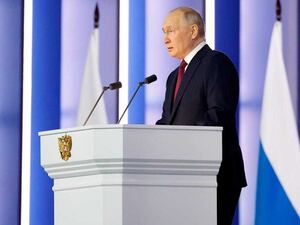
Russia has said it will respect caps on nuclear weapons under the New Start arms control treaty with the US, despite President Vladimir Putin earlier claiming he was suspending Moscow’s participation in the pact.
The Russian Foreign Ministry also said Moscow will continue to exchange information about test launches of ballistic missiles under earlier agreements with Washington.
In his state of the nation address, Mr Putin had said Russia will suspend its participation in the 2010 treaty which envisages caps on the number of nuclear weapons and broad inspections of nuclear sites.
In a bitter state-of-the-nation address which made clear he would not change his strategy, Mr Putin said such inspections do not make sense after the US and its allies declared the goal of defeating Russia in Ukraine.
“We aren’t fighting the Ukrainian people,” he said ahead of the war’s first anniversary on Friday. “The Ukrainian people have become hostages of the Kyiv regime and its western masters, which have effectively occupied the country.”
The speech reiterated a litany of grievances he has frequently offered as justification for the widely condemned military campaign while vowing no military let-up in a conflict that has reawakened Cold War fears.
Mr Putin also said Russia should stand ready to resume nuclear weapons tests if the US does so, a move that would end a global ban on such tests in place since the Cold War era.
Russia invaded Ukraine on February 24 last year and made a dash towards Kyiv, apparently expecting to overrun the capital quickly, but stiff resistance from Ukrainian forces — supported by western weapons — turned back Moscow’s troops.
While Ukraine has reclaimed many areas initially seized by Russia, the sides have become bogged down elsewhere.
The war has revived the divide between Russia and the West, reinvigorated the Nato alliance, and created the biggest threat to Mr Putin’s rule of more than two decades.
While Russia’s constitution mandates that the president deliver the speech annually, Mr Putin never gave one in 2022 as his troops rolled into Ukraine and suffered repeated setbacks.
Much of this year’s speech covered old ground, as he offered his own version of recent history, discounting Ukraine’s arguments that it needed western help to thwart a Russian military takeover.
“Western elites aren’t trying to conceal their goals, to inflict a ‘strategic defeat’ to Russia,” he said in the speech broadcast on all state TV channels. “They intend to transform the local conflict into a global confrontation.”
He added that Russia is prepared to respond as “it will be a matter of our country’s existence”. He has repeatedly depicted Nato’s expansion to include countries close to Russia as an existential threat to his country.
Mr Putin denied any wrongdoing in Ukraine, even after Kremlin forces struck civilian targets, including hospitals, and are widely accused of war crimes.
Ukraine’s military reported on Tuesday that Russian forces shelled the southern cities of Kherson and Ochakiv while Mr Putin spoke, killing six.
Ukrainian President Volodymyr Zelensky said Russian troops were “again mercilessly killing the civilian population”.
Mr Putin began his speech with strong words for countries that provided Kyiv with military support and warned them against supplying any longer-range weapons.
“It’s they who have started the war. And we are using force to end it,” he said before an audience of legislators, state officials and soldiers.
He also accused the West of taking aim at Russian culture, religion and values because it is aware that “it is impossible to defeat Russia on the battlefield”.
He also claimed western sanctions had not “achieved anything and will not achieve anything”.
In his his own speech later on Tuesday, Mr Biden is expected to highlight the commitment of Poland and other allies of Ukraine over the past year.
White House national security adviser Jake Sullivan said the address will not be “some kind of head to head” with Mr Putin, adding: “This is not a rhetorical contest with anyone else.”

